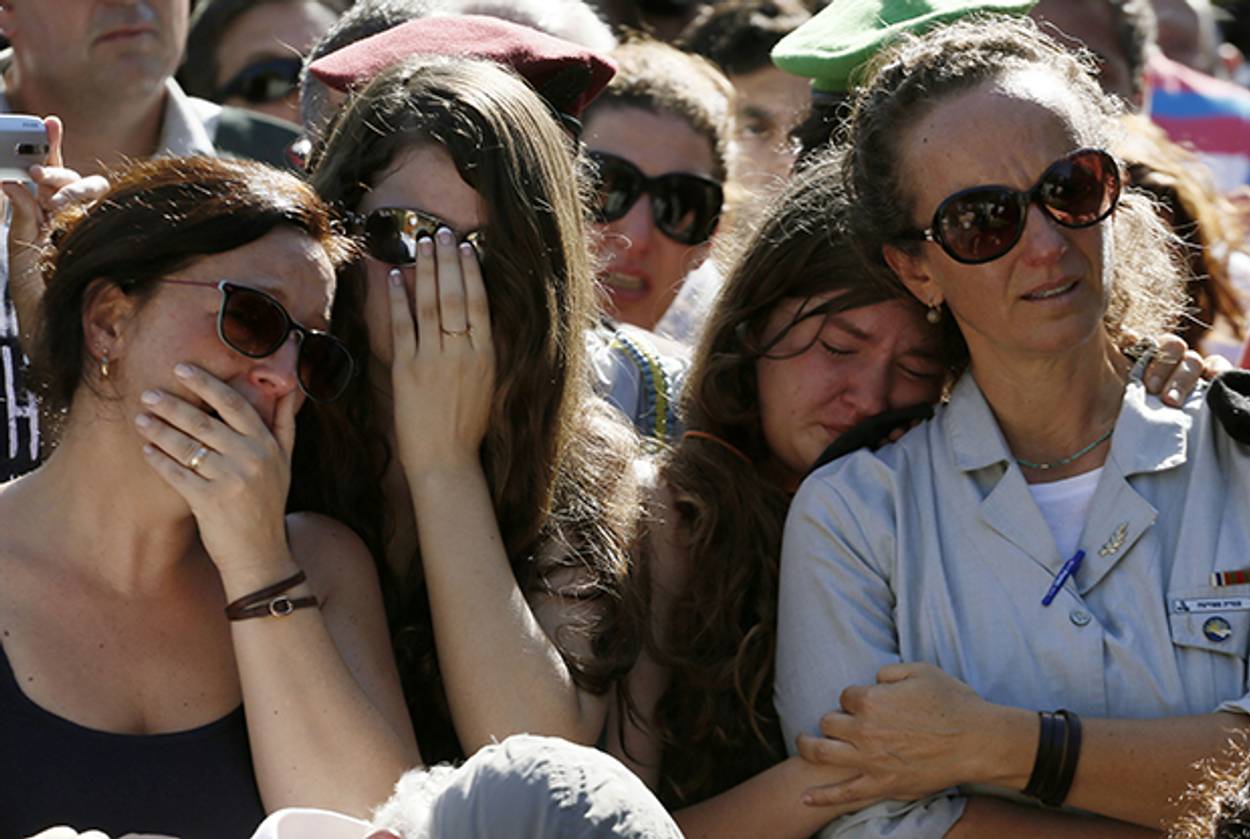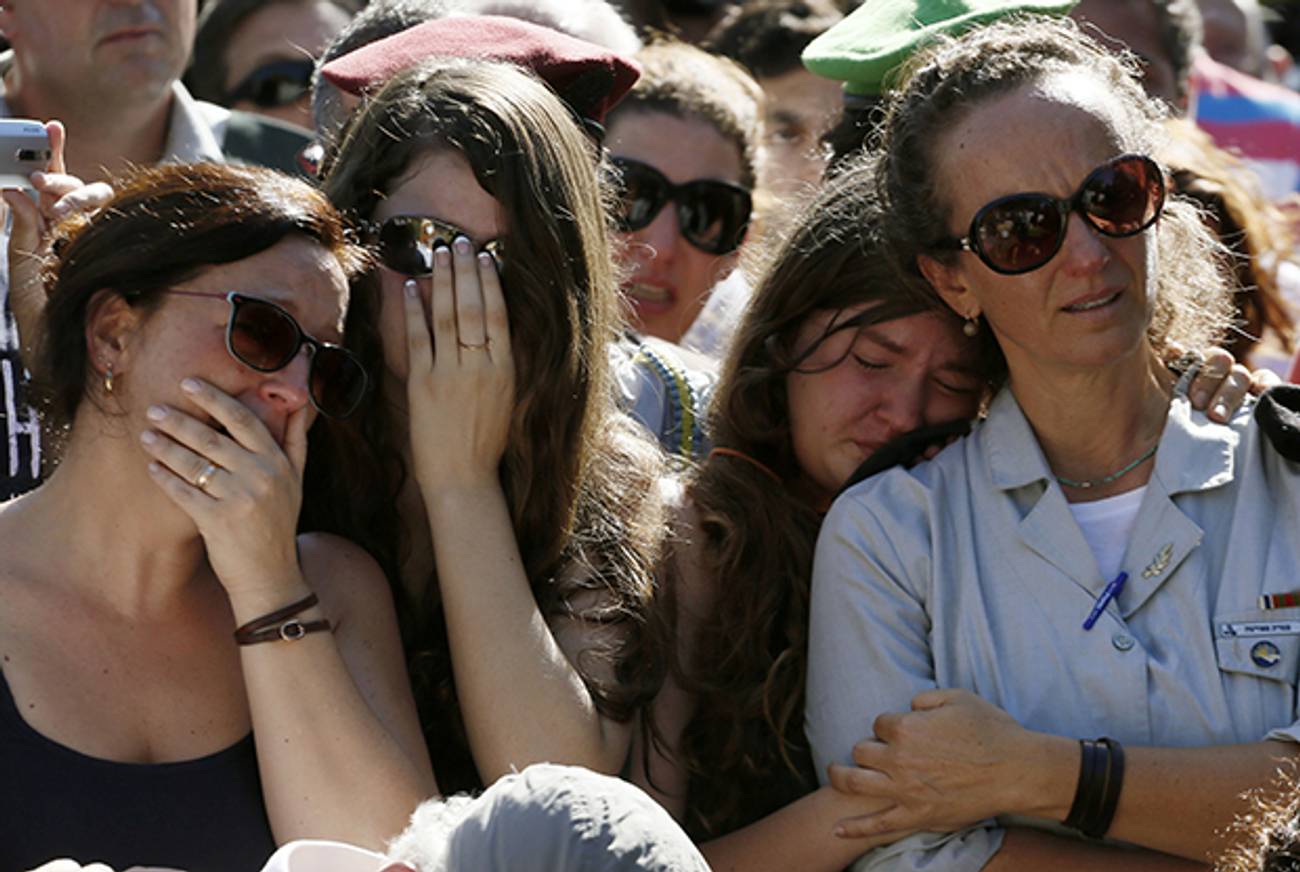The Gender Politics of the Gaza Conflict
Elana Sztokman on the status of Israeli women during the war




Over at the Atlantic, Tablet contributor and Jewish feminist activist Elana Sztokman discusses how gender dynamics have played out during the recent Gaza conflict in an essay pointedly titled, “Gaza: It’s a Man’s War.” Sztokman points out, rightfully, that the images we’ve seen during the month-long conflict have largely featured men.
“When women did appear,” Sztokman writes, “they were often seen eulogizing, mourning, or struggling to reconcile with their reality.”
The Israel-based activist and author focuses on the status of women on the Israeli side of the conflict, noting the startling absence of women on seemingly all fronts: in combat roles, leadership roles, and in the ongoing ceasefire negotiations. Sztokman argues:
From start to finish, the latest Gaza conflict has largely been a man’s war. The Israeli negotiating team in Egypt does not include a single woman–not even Justice Minister Tzipi Livni, whose condition for joining the current governing coalition was that she head Israeli-Palestinian negotiations. Prime Minister Benjamin Netanyahu has instead appointed his own (male) representative, Yitzchak Molcho, to represent him in the delegation. Livni sits on Israel’s security cabinet, the small committee that has made most of the major decisions about this war, but, tellingly, she is the only woman at the table. The story is the same on Israeli television and in the country’s newspapers. According to a study by The Marker, fewer than 10 percent of all experts interviewed on news programs during the war have been women.
You can read the full piece here—I’d recommend it.
Sztokman spoke with Vox Tablet in February, upon the publication of her National Jewish Book Council Award-winning book about gender issues in Jewish day schools, which she co-wrote with Chaya Rosenfeld Gorsetman. She discussed how notions of gender—and gender-segregated roles—get introduced in early childhood classrooms, specifically in the context of Shabbat and morning prayers, and what each gender is assigned to do in both scenarios.
“So that children from really early on are learning that keeping Shabbat depends on what gender you are,” Sztokman told Vox Tablet host Sara Ivry. “There is a version of Shabbat that’s for boys, and there is a version of Shabbat that’s for girls.”
You can listen to the podcast here.
Previous: Voices From Gaza: ‘We Are Suffering’
Related: Talmud for Boys, Challah-Making for Girls—Gender Rules in Orthodox Day Schools
Stephanie Butnick is chief strategy officer of Tablet Magazine, co-founder of Tablet Studios, and a host of the Unorthodox podcast.